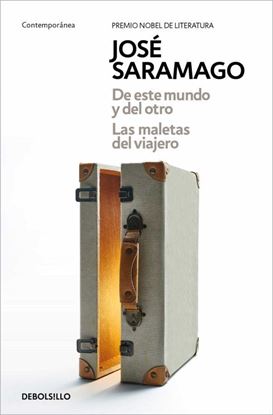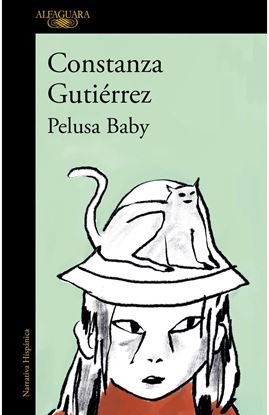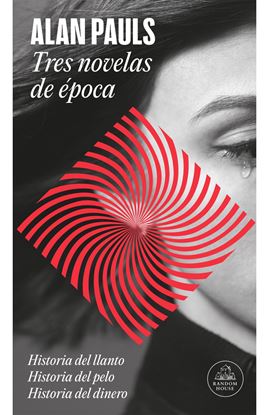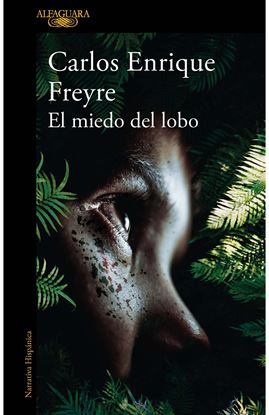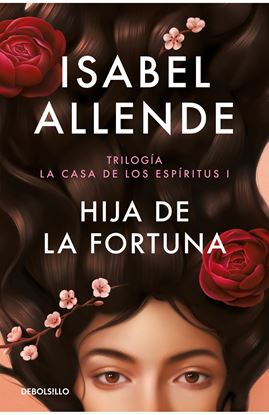

DE ESTE MUNDO Y DEL OTRO. LAS MALE (BOL)
Los dos libros agrupados en este volumen contienen artículos escritos con un lenguaje claro y directo, en los que se conjuga la reflexión, la observación y la crítica de temas muy diversos.
De este mundo y del otro es una serie de crónicas breves acerca de la vida cotidiana y sus misterios. En Las maletas del viajero, Saramago habla de su niñez, su familia, sus vivencias y los engaños de la política, así como de la vida de las ciudades, el arte y los museos. En los dos casos, su prosa demuestra un fino humor y una ironía que invita a su lectura. El conjunto nos permite entrever a un escritor directo y cercano, que parece dialogar con sus lectores de viva voz.
995
PELUSA BABY (MDLL) (ARG)
Con un notable despliegue de talento y referencias propias de toda una generación, Constanza Gutiérrez retrata un mundo de profundas inconformidades en estos cuentos que son también sátiras agudas e hilarantes sobre el mundo contemporáneo. Los relatos que reúne este libro dan cuenta de un universo en donde el juego de espejos y reflejos del mundo virtual tiene atrapados a sus protagonistas, que deambulan con el mismo entusiasmo entre el K-Pop, Shakira, Juan Gabriel o entre Manuel Rojas, Gógol y Harry Potter. Pelusa Baby es un libro divertido, entrañable y perspicaz a la vez, que consagra a Constanza Gutiérrez como una de las voces más originales y brillantes de la narrativa chilena contemporánea.
995
TRES NOVELAS DE EPOCA
Estas novelas "huérfanas" -como mascullaba en sus diarios el autor- fraguan la epopeya conocida como Los Años Setenta con destellos de la materia más cotidiana y perenne: el goce de ser una víctima y llorar lágrimas de cocodrilo; la pasión del cash, nunca tan intensa como cuando el dinero se esfuma en los vértigos de la inflación, el juego o el despilfarro; el pelo como ícono frívolo-político, lacio-burgués o afro-revolucionario, y cierta peluca célebre por participar del secuestro que inauguró la década en cuya órbita legendaria, nos guste o no, seguimos moviéndonos.
Reunidas por primera vez en un solo volumen, Historia del llanto, Historia del pelo e Historia del dinero narran cómo se forma una sensibilidad al calor de un puñado de pasajes decisivos: del colegio privado a la solidaridad socialista; de la novela familiar a la intemperie del mundo social; de la ilusión amorosa al desencanto; del culto de la imagen al duelo; de la ostentación y la opulencia a una bancarrota que es mucho más que financiera.
Lúcido hasta el extravío, Pauls dirige su haz de luz directo a los ojos de quien lee para que en la ceguera aprecie la materia risible de la que se nutre toda experiencia humana. La singular. Y la política.
995
EL MIEDO DEL LOBO
El soldado ha visto mucho: motines terroristas, punas inhóspitas, fronteras sinuosas. En esta experiencia descubre el motivo para convertirseen escritor. Tiempo después, recibe el mensaje de un desconocido, Aquiles, quien le pide que lo escuche. Aquiles era un niñocuando fue secuestrado por Sendero Luminoso. Vivía en una pequeña comunidad en el río Perené de la cual fue arrancado e incorporadoa la gran masa. Durante años será empleado como fuerza de trabajo, sometido a abusos y humillaciones, aislado, adoctrinado,deshumanizadoy transformado en parte de una maquinaria de violencia ideológica.En medio de la pesadilla de su vida, Aquiles se aferra a un sueño de fuga: huir de sus captores, hallar a su familia, ser libre.
El miedo del lobo es una historia real. Los años de sujeción del protagonista reproducen, a escala mayor, la violencia a la quefue sometido todo un país, sumido aún en tensas disputas internas.Raptos,saqueos, vejaciones, crímenes, hambre, soledad, desesperanza. ¿Se puede atravesar el infierno y salir con el alma limpia?
995
HIJA DE LA FORTUNA (ESPIRITU 1) (BOL)
Eliza Sommers es una joven chilena que vive en Valparaíso en 1849, el año en que se descubre oro en California. Su amante, Joaquín Andieta, parte hacia el norte decidido a encontrar fortuna, y ella decide seguirlo. El viaje infernal, escondida en la cala de un velero, y la búsqueda de su amante en una tierra de hombres solos y prostitutas atraídos por la fiebre del oro, transforman a la joven inocente en una mujer fuera de lo común. Eliza recibe ayuda y afecto de Tao Chi'en, un médico chino, quien la conducirá de la mano en un itinerario memorable por los misterios y contradicciones de la condición humana.
Hija de la fortuna es un retrato palpitante de una época marcada por la violencia y la codicia en la cual los protagonistas rescatan el amor, la amistad, la compasión y el valor. En esta su más ambiciosa novela, Isabel Allende presenta un universo fascinante, poblado de entrañables personajes que, como tantos otros de la autora, se quedan para siempre en la memoria y el corazón de los lectores.
995
SIGO SIENDO YO (NC) (3) (BOL)
Lou Clark sabe demasiadas cosas...
Sabe cuántos kilómetros hay entre su nuevo hogar en Nueva York y su nuevo novio, Sam, en Londres.
Sabe que su jefe es un buen hombre y sabe que su mujer le está ocultando un secreto.
Lo que Lou no sabe es que está a punto de conocer a alguien que va a poner toda su vida patas arriba.
Porque Josh le recordará tanto a un hombre que conocía que hace que el corazón le duela.
Lou no sabe lo que hará a continuación, lo que sí sabe es que lo que decida lo cambiará todo para siempre.
995


